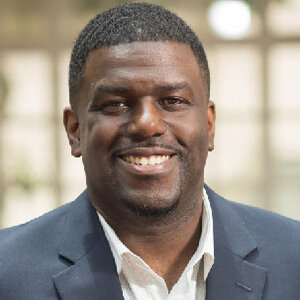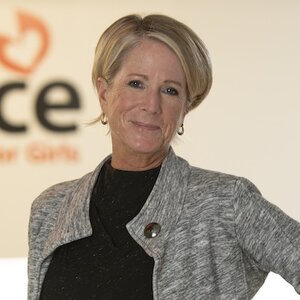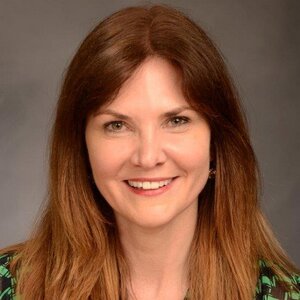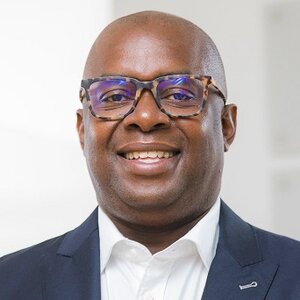Artis Stevens, President and CEO, Big Brothers Big Sisters of America: Creating greater equity for youth
March 6, 2023
Artis Stevens became president and CEO of Big Brothers Big Sisters of America (BBBSA) in January 2021, the organization’s first Black CEO in its 119-year history. Stevens has established new Justice, Equity, Diversity, and Inclusion (JEDI) practices and JEDI and Youth advisory councils and is exploring ways to increase access to mentorship.
Before joining BBBSA, Stevens served as senior vice president and chief marketing officer for the National 4-H Council. Prior to that, he served as national vice president for marketing, strategy, and operations at the Boys & Girls Clubs of America (BGCA), where he spearheaded the organization’s new tagline and most impactful brand awareness campaign launch to date: Great Futures Start Here.
PND spoke with Stevens about the organization’s progress toward equity goals, how BBBSA is responding to the growing need for mentorship, and his advice to aspiring BIPOC (Black, Indigenous, and people of color) leaders in the nonprofit sector.
Philanthropy News Digest: It’s been two years since the Justice Equity, Diversity, Inclusion (JEDI) council was formed. What changes have been made, and what improvements have you seen?
Artis Stevens: JEDI is an integral part of Big Brothers Big Sisters’ values and mission. We were founded over a century ago as an alternative to the juvenile justice system to create greater equity for youth, so all kids can feel included in the promise of opportunity and a better life. We’ve since become the largest one-to-one youth mentoring organization in the United States.
In alignment with this commitment to equity and youth empowerment, the JEDI Advisory Council was created in 2021 to ensure that all voices and perspectives are heard and honored throughout the BBBS network. The JEDI Advisory Council is currently partnering with the BBBS Nationwide Leadership Council to support the network as they map out priorities and needs for our 230-plus agencies across the country.
Over the past two years, we’ve continued to support our network with JEDI learning resources to build capacity, awareness, and understanding. With more than a thousand leaders trained in JEDI and hundreds of our agencies adopting it in their communities, it’s the essential ingredient for the work we do and the communities we serve.
We’ve established key national partnerships to expand our reach among communities of color, such as Alpha Phi Alpha, the first intercollegiate Greek-letter fraternity established for African American men, and Lambda Theta Phi, a national Latino fraternity. We are also hosting conversations with other BIPOC fraternities that help encourage more men of color to volunteer as mentors.
In addition, as part of our Starbucks Foundation grant, we’ve launched social justice incident response efforts, known as Relationship Responders, to support communities impacted by traumatic events. Through Relationship Responders, we’ve provided resources and training to agency staff, so they’re equipped to support their communities through engagement strategies that are holistic and include context on culture and identity. As such, we’ve been able to respond to our agencies in Buffalo and Uvalde after last year’s tragedies and further empower them with the tools to help heal individuals and communities through a village of support.
PND: What was the thinking behind reaching out to alumni as a new strategy? What was the previous strategy?
AS: Big Brothers Big Sisters’ community of over 20 million alumni is one of our most powerful assets. As former Bigs and Littles, alumni have the highest affinity for our mission—90 percent of Bigs say they’re proud of their time served as a Big and 85 percent of alumni say BBBS changed their life for the better.
With these insights, we know that alumni have the potential to become authentic advocates that inspire others to get involved, having experienced the impact of mentorship firsthand. It’s a strategy that reconnects alumni to our mission through compelling storytelling and relationship building. BBBS alumni are everywhere, across many industries—they’re corporate leaders, professional athletes, government representatives, and more. Together, with our alumni, we can create valuable partnerships that help BBBS reach more young people with mentorship opportunities.
Previously, alumni were primarily engaged through individual agencies on the local level. While local agencies will continue to foster alumni connections, we are now also pursuing a broader, national alumni strategy to harness the power and potential of our collective network.
PND: With growing demand for BBBSA mentoring coming from young adults, how is the organization adjusting? What challenges and benefits come with an older demographic of participants?
AS: Young adults aged 18 to 25 are the fastest-growing demographic we serve. They’re navigating their lives after high school and are seeking out mentorship as well as career-readiness opportunities that will help prepare them for future success. To fulfill this demand, we have been actively working to expand workplace mentoring opportunities in collaboration with our corporate partners.
For example, our Big Futures programming exposes young people to various paths they can take after graduation, whether it’s higher education or the workforce. It’s also a great opportunity for employers to attract and retain the next generation employees. Our corporate partners, including the NFL, Express, UPS Foundation, JP Morgan Chase Foundation, and others, provide youth with mentorship moments, internships, scholarships, and job placement. Youth learn real-world work skills, such as financial literacy, public speaking, and leadership, while employers develop the next generation of employees.
The older demographic of participants reinforces the need for mentorship beyond childhood and adolescence. We need more volunteers who welcome the opportunity to impact young adults as they make some of their first big decisions affecting their personal and professional journeys. Volunteers can easily get involved through a workplace mentorship program that brings Littles directly to them for career-readiness opportunities.
We’ve often heard from our Bigs that they benefit from their mentorship relationship just as much, if not more, than their Littles. In fact, many Bigs also experience “reverse mentorship” through their Littles, who often provide new, fresh perspectives on trends, needs, and challenges facing their generation.
PND: During your time so far as CEO, BBBSA landed Express and Merrell as new partners and received a significant donation from Mackenzie Scott. What impact could big financial commitments like these have on the organization? What are your plans for how to put the Scott donation to use?
AS: Thanks to Mackenzie Scott’s support, we received the largest-ever single donation in our organization’s history. The funding will continue to fuel our 119 years of evidence-based mentoring programming and expand the impact, innovation, and scale of our mentoring experience. It’ll enable us to provide millions of mentorship opportunities that meet young people where they are, in over 5,000 communities across all 50 states. At the same time, we’re building the capacity of our staff, network, and our village to serve more young people and their communities. Mackenzie Scott’s investment, and other financial commitments like these, not only become launching pads for the next phase of BBBS’ growth, but an invitation for individuals, corporations, and supporters across the country to join us in transforming communities through the power of mentorship.
PND: What does it mean for you to be the first Black CEO of BBBSA, and what would you tell aspiring BIPOC leaders in the nonprofit sector? What does it mean for BBBSA and for the sector more broadly?
AS: Two years ago, I was humbled and honored to become the first Black CEO in our organization’s history. While this selection is historic, it was only a precursor to our network-wide JEDI commitment that’s defining a legacy of representation, allyship, inclusion, and belonging for all kids.
For aspiring BIPOC leaders in the nonprofit sector out there—I want them to know that it’s never too late to break barriers and set an example. The next generation of leaders need to see that because representation matters. If you can see it, you can be it.
I’d also encourage future leaders to lean on mentors and mentorship opportunities as they navigate their careers because I know firsthand the life-changing impact mentorship can have. I was fortunate enough to have positive mentors at home—both my mom and my dad recognized the power of community. They valued the village that surrounded us and it took that entire community to raise me and my siblings. That experience is what inspires me. That’s what makes what we do so powerful–it truly takes a village to raise a child and shape the future leaders of this country.
PND: Black teens are among the demographic groups with rapidly rising rates of suicide and mental health challenges. How does this affect BBBSA’s mission and goal? Can you share a little about what the DEI trainings entail and early takeaways? How has it affected BBBSA’s volunteer recruitment efforts?
AS: Young people’s mental health and well-being is an urgent public health issue—the next generation needs us. The challenges faced by BIPOC youth reinforce the importance of our mission and approach of empowering young people by creating safe, supportive and positive developmental ecosystems that give them space to cope and grow.
Research shows that while half of all chronic mental health challenges begin by age 14, it takes over 10 years on average for most people to access help, with Black, Indigenous young men of color least likely to access support. To close that gap and enable young people of color to seek and receive mental health support, we’ve partnered with Futures Without Violence, National Council for Mental Wellbeing, and Harry’s on Team: Changing Minds, an initiative that will train and activate a national network of mental health responders dedicated to helping teens, particularly Black male-identifying youth. The initiative focuses on recognizing signs of early mental health challenges and connecting youth to resources for support. By increasing the number of young people who access support earlier, we can serve as a village of support as they navigate their mental health. To complement these efforts, many agency staff have also become certified in Mental Health First-Aid training, which provides them with the tools to help identify signs and symptoms of mental health challenges in young people.
It’s important that we meet young people where they are, and in recent years, we’ve gained insights on how we can best innovate our mentorship model to adapt to their needs. We’re expanding our one-to-one adult-youth mentorship programming to offer mentorship opportunities in group settings, facilitate peer-to-peer mental health support, and encourage mentorship connections on virtual platforms.
We’re also training staff and volunteers across the country on how to reach and serve BIPOC communities more effectively, including launching dedicated efforts to recruit more BIPOC volunteers. Beyond the diverse national partnerships launched as part of our JEDI efforts, we’ve continued to work with our partners at the NFL and NBA to create awareness around the need for BIPOC mentors and encourage men of color to sign up as volunteers.
PND: Right now, 30,000 children within BBBSA’s system need mentors. Is this demand-supply mismatch between children and mentors a result of the pandemic and an increase in children needing support, or the pandemic’s effect on dwindling numbers of volunteers?
AS: During the pandemic, many families and volunteers took extra precautions against exposure, so demand for one-to-one mentoring declined. However, the isolation of the pandemic had a dramatic impact on adolescents and young adults, since they were at a critical age where forming social bonds and exploring opportunities for the future were key.
As a result, over the last three years, we’ve experienced a significant increase in demand for mentorship among young adults aged 18 to25 years old. This demographic increased by 34 percent in the past five years, with the biggest growth during the pandemic, up 17 percent from 2020 to 2021. Though volunteerism in the U.S. has declined overall, we’re starting to see an increase in individuals volunteering directly through their workplace, which makes us optimistic that we’ll be able to continue to meet young people’s needs.
Additionally, the majority of the kids on the waitlist for a mentor are boys of color. We currently need more mentors, particularly those representing BIPOC communities, to get involved and help end the wait for kids to access mentorship opportunities.
—Samantha Mercado








To close the racial wealth gap, look beyond education and into our communities